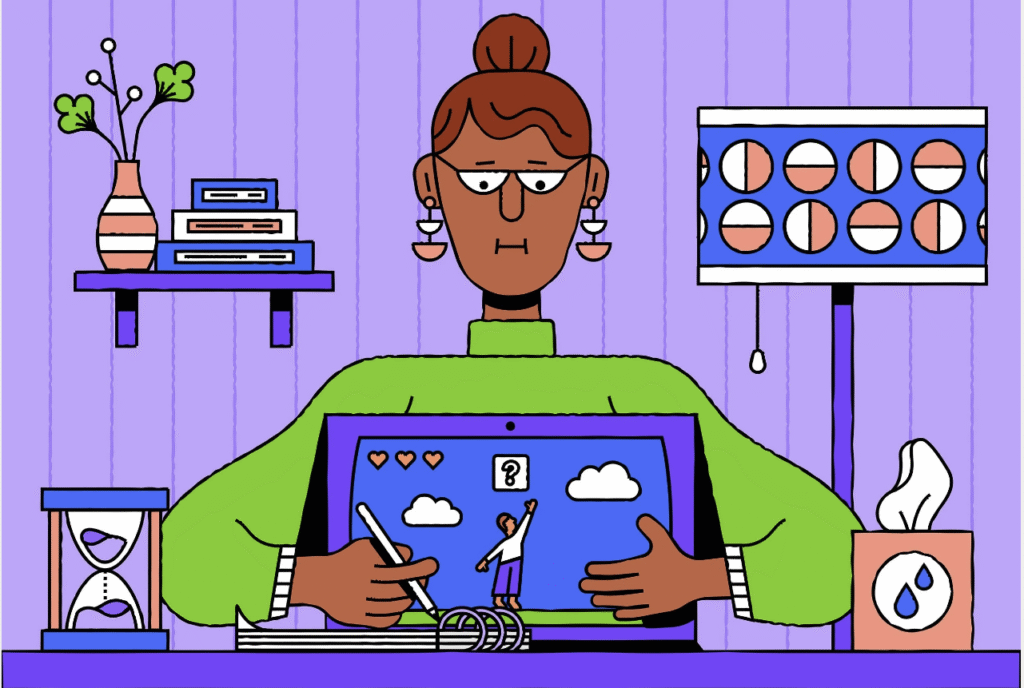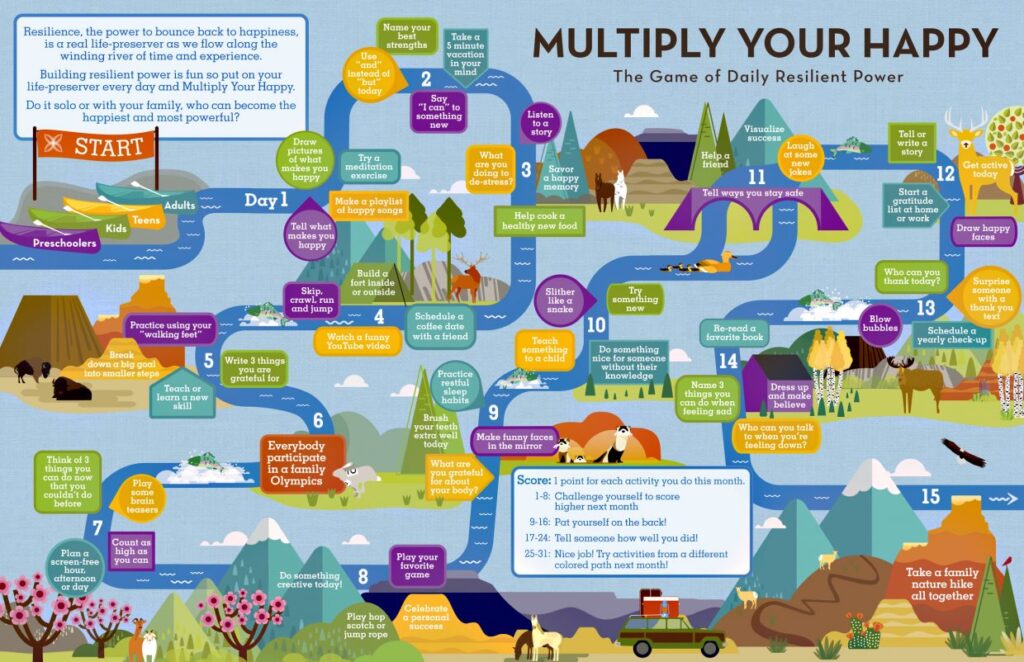When our children spend hours playing games or our aging parents enjoy weekly card games with friends, we don’t think of it as healthcare.
We’re conditioned to see games as pleasant distractions at best, timewasters at worst. But both, it seems, are simplistic perspectives.

Games and Gaming for Mental Health
Purposefully designed games: These are games explicitly created by professionals to deliver specific therapeutic benefits—like teaching cognitive behavioral therapy (CBT) techniques through gameplay or helping people rebuild their sense of self and identity after a crisis. Kind of like interventions but in game form.
The act of playing games: This is about what happens when you play chess with your grandfather every Sunday, or when friends gather for a board game night. The game itself wasn’t designed for therapy, but the act of playing—the mental challenge, the social connection, the sense of agency—creates therapeutic effects.
Both matter. Both work. And crucially, both bypass the massive barriers that keep many from accessing mental health support.
The Reality We’re Working With
India has just 0.75 psychiatrists per 100,000 people—far below the recommended standard of 3 per 100,000. The treatment gap for milder depression and anxiety is 85%, and for severe mental disorders, 73.6%.
While the numbers tell a story, it isn’t just about the numbers. It’s about the teen in a small town struggling with anxiety with nowhere to turn. The elderly person in a village showing signs of cognitive decline with no specialist within 100s of kms. The working professional in a metro dealing with depression but unable to take time off for appointments or afford ongoing therapy.
For millions, traditional mental health infrastructure remains inaccessible. That’s where games can come in. They’re accessible. Affordable. Private. Available right now.
Purposeful Games: Games to rebuild identity
games THAT help us remember we are more than what we are going through
The thing about mental health is that while medication alleviates the symptoms, the deeper challenge is reconstructing your sense of self. Who are you beyond your diagnosis? Can you trust yourself to make good decisions?
A specially designed board game addressed exactly this. Researchers tested it with 62 people—half with severe to mild mental health conditions and in recovery, and the other half people with no reported mental health conditions. The data revealed that both groups felt their sense of self-belief and mastery improve after playing the game. They reported greater control in their ability to make choices, handle challenges, and shape their own future.
This after just two rounds of game play. Isn’t that astounding!
Why did it work? Because the game gave players a space in which they could practice being in control. The narrative of the game had the protagonist facing challenges and making decisions, giving players agency in a low-stakes environment. The confidence they built from making decisions transferred to real life.
This is purposeful therapeutic design in action—engineered to address a specific recovery need, without requiring trained therapists, appointments, or even the internet.

Playing Games: Game nights save your brain
The second therapeutic effect comes simply from the act of playing games. By 2050, 19% of India’s population will be over 60 years. Currently, dementia prevalence in adults 60+ in India is 7.4%. We can all do the math.
In a 20-year-long study, French researchers followed thousands of older adults and found those who played board game had a 15% lower risk of developing dementia than non-players. Both cognitive stimulation and social connection are at play here (pun intended). The mental challenge keeps the brain active and adaptable, while playing with others combats isolation and provides meaningful engagement.
Think about the implications for India. We don’t need a specialist clinic or expensive medication. All we need is a chess set, or a deck of cards, and regular family game nights. Truly, the good things in life are often free or cost very little. In this case, the cost of cognitive protection is less than a single consult with a doctor, while providing ongoing benefits for years.
Implications
We are by no means claiming games as replacements for professional care. But they can be bridges, supporting systems, and interventions for the 85% who otherwise get nothing.
We many never have enough hospitals, trained psychiatrists, or therapy slots to meet the mental health needs of our population through traditional approaches alone. We need parallel systems— and games provide an accessible, affordable, scalable, and effective form of intervention.
Sure, they’re not miracle cures or suitable for every situation. But for an individual, a well-designed game might be the difference between suffering in silence and getting help.

Leave a Reply